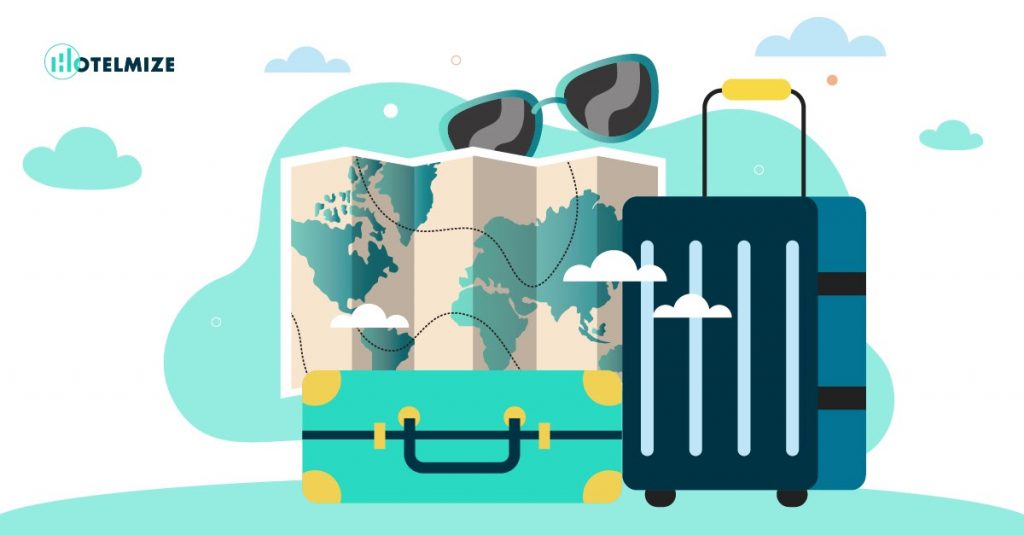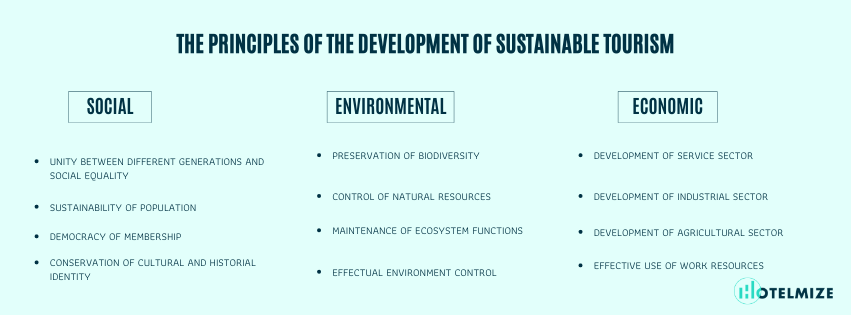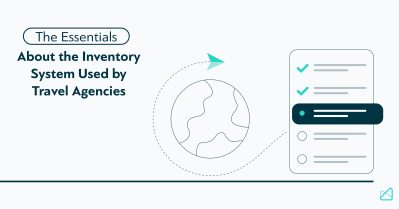Role of Tour Operators in sustainable tourism: Challenges explained and solutions proposed

The travel industry has changed the way in which people view the world. Tour operators have contributed to the development of isolated areas all across the globe – making remote lands accessible to outsiders, empowering communities to represent their cultures, and bringing economic gains to areas that lack resources.
In recent years, people have become more environmentally conscious. Cars are transitioning to electric power, straws are now made of paper and houses are powered by solar panels. People are making drastic lifestyle changes in hopes of leaving their descendants with a beautiful, thriving Earth for years and years to come.
The travel industry is right there with the rest of the world in its efforts to become more sustainable. Great progress has already been made as tour operators and travel agencies are consciously modifying their platforms to be as responsible as possible. New developments and practices are being put in place to ensure this industry is doing its part in saving the planet.
Tour operators working as problem solvers
Luckily, people are starting to become in tune with the Earth’s needs, and an abundance of research has been done on sustainable development practices we can use to keep our planet happy and healthy. Responsible tourism is part of the answer for changing the course the world has been on in the past years, and this article will provide you with all you need to know about how your travel business can help promote sustainable practices.
Contributing to sustainable tourism is a win-win situation for your own brand and the world. As people become more educated of the implications their travels have, they are becoming more aware of the ways they can lessen their own negative impacts and want to partner with agencies that will help them make positive changes.
“New generations of tourists appear showing a behaviour drifting away from the pure consumerism, but developing mentality of environmental consciousness, that characterises them as tourists who would prefer to stay in environmentally friendly accommodations using renewable energy sources. They are willing to pay more for “green” products and higher prices for staying in environmental friendly hotels,“ says Stanislav Ivanov in his essay “Sustainable Tourism Practices of Accommodation Establishments in Bulgaria: An Exploratory Study.”
What is Responsible Tourism?

The first step in achieving responsible tourism is understanding the basic goals and social responsibilities it entails.
According to “The Case for Responsible Travel: Trends & Statistics 2019,” written by The Center for Responsible Travel staff, sustainable tourism is tourism in which the economic, social and cultural needs are met and managed in a way that does not disrupt the integrity, ecology and wildlife of a host location.
Responsible tourism optimizes the positive impacts tourism has on host communities, generating mutually beneficial social situations, avoiding harming the environment, and providing aid and support to the inhabitants and cultures of the community.
These terms are guidelines to keep in mind while you shape your company into one that brings as much attention to optimizing the positive impacts an experience has on the tourist, as it does to optimizing the positive impacts the experience has on the destination of the inbound tour.
Why does responsible tourism matter?
Traveling is a beautiful thing. Being able to explore parts of the world you’ve never seen, interact with cultures you know nothing about, observe wildlife in their natural habitats – the experience is priceless, but sometimes the damages they cause may come at a heavy cost.
The travel and tourism industry relies not only on the wellbeing of tourists, but also on the wellbeing of the environment, the community, and the economy of the destination.
Unfortunately, some common tourism practices are contributing heavily to climate change and the degradation of our planet. If people do not work to make significant changes soon, the waters will continue filling with garbage, the cities will be poorer, more wildlife will be extinct – there will be less incentive for people to travel, ultimately impacting the tourism industry.
The three main areas of concern are environmental, social and economic sustainability. Each area has its own harmful impacts on the world, and there are innovative approaches to how having a tour operator business plan can reduce the negative impact their customers have while embarking on their travels.
This scientific diagram from ResearchGate gives a general overview of the sectors we will be focusing on.

Environmental Impact
Challenge:
The environmental implications are probably the most widely understood and fought for. Climate change is not a force to be messed with. Human beings have spent our years on Earth adding to the natural greenhouse effect, meaning we release gasses from things like industrialisation and agriculture, and the gasses are being trapped in the atmosphere and ultimately warming Earth.
This is a problem for multiple reasons. First, it is altering habitats and putting wildlife in danger, causing some species to go extinct because they can not adapt as quickly as the temperature is increasing.
Another result of climate change is extreme weather, for some areas this could be drought and others this could be floods. This will affect poor communities at a much higher rate than affluent communities because they may not have the resources to deal with such sudden change.
What can we do?
Discourage Littering
When tourists enter a community, they should leave it looking the same, if not better, than when they found it. The easiest way to be mindful of the environment is to enlighten your customers about sustainability.
Encourage tourists to dispose of all trash properly and never litter. Bodies of water are at standstills because of how much pollution is floating through them. This takes away the natural beauty of the location – nobody wants to travel a long way just to see a bunch of old water bottles floating in a lake. It is in the best interest of tourism development to keep the world looking beautiful.
Encourage Low-emission Travel
A large factor of climate change is the amount of emissions released from methods of transportation. This is an opportunity for your tour operating company to help in drastic ways: promote eco-friendly transportation.
If your customer does not need to fly to get to their destination, they should not. Taking a train is a much better option. If they do need to fly, try to limit short flights and book them a direct flight from their location to their destination. Also, they may want to consider booking their seat in economy class, granted, the seats are smaller, but these seats have a smaller carbon footprint than business class.
Discourage Disrupting Wildlife
An important aspect to the environment is the wildlife. Tourists should never come close enough to animals to alter their wellbeing. Tours should take tourists to the habitats of animals to observe from afar. Any other method of interaction between people and animals should not be available through your services.
Follow Rules and Regulations
You also should make sure you are up-to-date on the government wildlife regulations for specific locations.
For example, in the essay “The Role of Tour Operators in Sustainable Ecotourism: Lessons from Kenya,” Roselyne Nyawiri Okech explains that the Kenya government pays close attention to the effects of tourism on environment and has established “management practices [including]: more participation by the locals, there was reduction on poaching, stricter rules on wildlife disturbance and off road driving was prohibited….”
Be mindful of regulations in any location you send customers and make sure your practices comply.
Offer Sustainability Trips
To take this all one step further, your company can offer specific trips with the goal of being environmentally sustainable, for example, beach clean ups. This way you can not only avoid hurting the environment, but you can actually contribute to making it healthier.
Social Impact
Challenge:
When a community welcomes strangers into their homes, the community deserves to be treated with respect. Tourists come for a day, take photos, make memories, but then they leave before the sun even goes down and may never return.
However, there are people who call that place home. They wake up there everyday and see new groups of people flood in, just to pick up and leave again. This leads to four major things: commodification, standardization, culture clashes and social stresses.
Commodification is when traditions and culture are commodities for tourists to consume. This takes away from the significance of the cultural practices and is disrespectful to the people of which these practices belong to.
Standardization is when the location becomes so catered to hosting tourists that the culture of the native people becomes lost. For example, putting big brand-named fast food or retailers in a remote village or town dilutes the things that make the location so special.
Culture clash refers to the difference in ways of life between residents of an area and the people who visit it. Especially when traveling a far way from home, one will quickly realize that living standards and norms are not consistent around the world.
Social stress occurs when the tourists in a location contribute heavily to inconveniences like traffic, waste disposal, loud noise or heavily congested areas. This puts pressure on the community and often makes the residents uncomfortable in their own cities.
What can we do?
Hire Local Workers
The biggest thing for tour operators to do to be more socially sustainable is to work to alter their supply chain management to include the local people residing in a destination. Supply chain management is the flow of goods and services from the raw material to the final product.
To ensure the culture stays alive and that money is going directly to the people working hard to keep the land beautiful for tourists, work to hire as many local employees as possible.
Book Immedities With Local Companies
Tour guides should know the land like the back of their hand, because it is their home. Visitors should eat local food from local restaurants to be emerged in the heart of the culture. Increase your bookings of local hotels, not global all-inclusive resorts.
The general idea is to put money into the pockets of the people offering their homes to you. This will be mutually beneficial for it will offer a unique travel experience that is representative of the location and the culture.
Book Trips in Remote Areas
A great way to solve the issues of culture clash and social stress are to encourage trips to more remote areas instead of inside bustling cities. Instead of an influx of tourists in one spot, if people stayed in scattered neighborhoods there would be much less congestion and stress in the city. Tourists can make day trips into the city and then disperse to other locations to keep the noise and traffic to a minimum.
Treat People WIth kindness
Perhaps the simplest way to be socially responsible in foreign lands is to be kind to the people who are being kind enough to let you into their world. Do not leave trash on the floor, help support local businesses, be mindful of where you stay and for how long – treat this temporary spot as if it were your permanent home.
Economic Impact
Challenge:
Although tourism generates a lot of money to boost the economy, a lot of the time this money does not benefit the local economy of the destination because it ends up elsewhere, a phenomenon called “leakage.”
Imports of goods focused on the needs and wants of tourists drive out locally owned businesses. This also goes for all-expenses-included destinations that may provide the major income flow to a foreign corporation, but little compensation to the local economy.
We use their natural resources (beaches, mountains, water supply) but may leave them with nothing but littered streets and higher taxes to pay.
A driving cost factor for the residents of a highly-visited destination is the local government and taxpayer money that goes to infrastructure. With an influx of tourists arriving everyday, the airport, roads, buildings and bridges need to be kept pristine and safe.
Building or fixing infrastructure is pulling away money that could be spent in a lot of different ways to improve the quality of life for those living in these exploited areas.
In most cases, tourism is seasonal. People leave their snowy homes for winter break and flee to the tropics, and in spring they leave their sunny poolsides to go to slopes for ski week. For locations that are economically dependent on tourism, this cycle may leave them out of jobs and out of money for entire seasons until the tourists flood in again.
In the article, Economic Impacts of Tourism, Daniel J. Stynes explains that, “Sales and job impacts can be quite misleading, as sales may go largely to buy parts from outside the region and job estimates are distorted by part time and seasonal positions”
In short, tourism contributes more positively to the global economy than it does to the local economy, which may be unfair to the residents who bare the costs.
What can we do?
Support Local Businesses
First things first, consider asking your clients to think twice about booking all-inclusive resort packages. Do your research and encourage them to stay at a local hotel, eat from the local restaurants, shop at the local stores and buy souvenirs from the local artists.
This will allow you to provide your client with a unique travel experience tailored to them, help showcase the value-added nature of your services, and will help distribute spending around the local destination.
Encourage Off-Season Trips
Plan excursions and tours in off-seasons. To lessen the load of stress on a city and to also provide the locals with year-long employment, it is important to send small groups of people throughout all the seasons, rather than sending too many people all at once.
Encourage people to see the beautiful sights in a new time of year, when they can get up close and personal to the culture and community without a crowd of other tourists around. Not to mention that your clients may enjoy more bang for their buck during the off-season.
Donate to Help the Cause
A simple way to contribute to the wellbeing of commonly visited communities is to donate money to conservation practices. This will help lessen the load of money taxpayers and local governments spend on making sure their home is tourist-friendly. Consider donating to the places that allow your industry to thrive.
Conclusion
In order to keep the travel industry alive and well, it is essential that efforts are made to be environmentally, socially and economically sustainable. Having a well thought out plan as to what your own company can do to help will be beneficial to your clients, to the destinations they travel to and to the overall wellbeing of the world.
Look Into a Travelife Partnership
A goal you can set in place is to partner with Travelife. Travelife is an organization aimed at giving travel agencies and tour operators the resources and training they need to transition to sustainable tourism.
This is a well established and respected company that will contribute their extensive knowledge and experience to your team, and in return your clients will be impressed with your status as “Travelife Certified” or a “Travelife Partner,” proving your commitment to sustainability.
After doing your research on how you can best implement sustainable practices, educate your suppliers, clients and stakeholders to encourage more people to travel responsibly. Actively recruit, train and employ local workers, comply with local laws and regulations, and work to give not only tourists, but residents of a community a positive experience.
Some resources to help you start the process of transitioning to be more responsible are:
Travelife’s training partner and certification process
The Australian Government’s Department of Environment and Heritage’s guide for tour operators and travel agencies in their journey to become sustainable.
The Government of the Republic Croatia Office of Corporation for NGOs’ course for Corporate Social Responsibility Training and Certification in the Travel Sector
You are already off to a good start by being here and showing interest in learning about responsible tourism. Rember, responsible tourism helps not only the environment, but also your bottom line along the way.
Good luck!
Are you a tour operator? Check our post about tour operator software, it may be interesting for you.
Subscribe to
our newsletter
Yay! You are now
subscribed to our
newsletter
Mize is the leading hotel booking optimization solution in the world. With over 170 partners using our fintech products, Mize creates new extra profit for the hotel booking industry using its fully automated proprietary technology and has generated hundreds of millions of dollars in revenue across its suite of products for its partners. Mize was founded in 2016 with its headquarters in Tel Aviv and offices worldwide.
Related Posts

List of 32 travel agency management groups
6 min. Whether you are thinking of moving into the travel industry or you already own a business in this sector, the concept of travel agency management groups is a task worthy of analysis and study. Defining an effective business model for your retail travel agency is one of the key factors in optimizing sales […]

Ultimate Guide to Understanding the Benefits of a Travel Management Company
12 min. Managing and operating modern businesses often encompasses corporate travel. However, managing business travel is complex, especially with limited experience and resources. You must ensure that everything goes smoothly for the travelers while staying on top of the logistics and expenses. That’s why many organizations decide to outsource their travel management to a dependable […]

The Essentials About the Inventory System Used by Travel Agencies
11 min. While travel agencies have to overcome many challenges to remain competitive, there is one challenge in particular that all agencies need to overcome despite their size or target market. They need to excel as intermediaries between tour operators or travel product suppliers and consumers or travelers. The real question is, how do they […]
